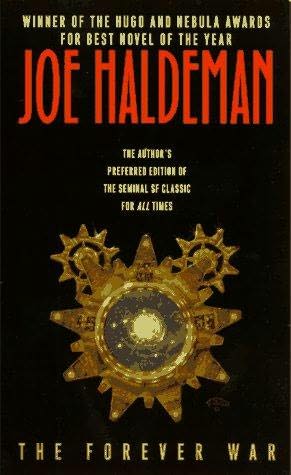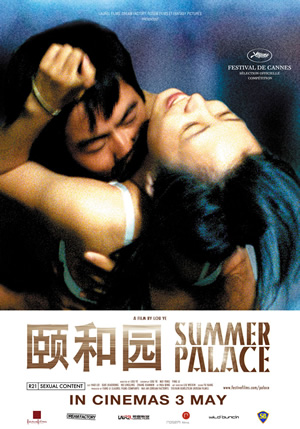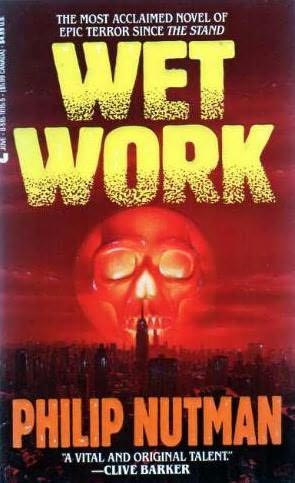In the spring of 1997, my life was changed forever.
In the spring of 1997 I was out of high school, and doing nothing but lounging around and hanging out with my friends, working the occasional odd job for a temp agency here and there for spending money. Larger and more verifiable changes would be coming in the fall and winter, after I started going to college and began to expand my horizons past my basement apartment in my mom's house. And yet the spring of 1997 marked an important shift in both my perception of the world and my habits within it. Most of the time revelations are seen in hindsight, people rarely recognize life changing moments as they happen. But this time I did.
In the spring of 1997, Lost Highway came to town.

Lost Highway may seem like an odd film to lionize as much as I'm about to, especially considering it's reception, which ranges from outright hatred to bored indifference. A hardcore David Lynch fan is unlikely to point out Lost Highway as a pinnacle of his career, but to me it was an honest to god life changing event. In 1997 I had seen nothing like it, and I was completely unprepared for the film's dark world of sex, crime, doppelgangers, time shifts, mysterious men and dangerous women and just pure weirdness. Lost Highway opened my eyes to a whole new world of film that I didn't even know existed, and it shaped the course of my cultural cravings for, well, just over a decade now.
But let's back up for a minute.
Like I said, in 1997 I was still living at home, and while I watched several movies almost daily for this year long period, my tastes had not yet been defined. I was devouring everything I saw, but not really processing it. I'd like to say I enjoyed foreign and arthouse films, but really I was a blockbuster fan. I liked spectacle, and that's what I went for at the video store. That was on it's way to changing in '97, but I was still pretty blind to the world of cinema past whatever was in the horror or new release section of the local video store. I came to Lost Highway because of the involvement of two people. Trent Reznor of Nine Inch Nails produced the soundtrack and contributed two songs, while Marilyn Manson had a brief, brief cameo late in the film. Marilyn Manson and Nine Inch Nails carry with them some pretty negative and embarrassing connotations, but both bands were big in my personal high school life, so when I began reading about this new film both of them would be connected to, I became interested.
At this point I know I'd seen an episode of Twin Peaks; I'd flipped over to it one night because you couldn't open a single publication in the first two years of the 90s without hearing how great the show was. But I was too young, and came to the show too late, so it made absolutely no sense to me and I never returned(I would later, and that obsession would grow and deepen to almost Star Trekian proportions). I'd also seen Dune, but I only had vague childhood memories. My point being that I had no real idea who this David Lynch guy was, but several people in bands I liked had cited him as an influence, and he was spoken of in terms that made me feel as if I were somehow depriving myself by not seeing his films.
When Lost Highway was released, it took a few months to reach Alaska, because at the time there was only one theatre that ran arthouse films; the Capri. I miss the Capri immensely, even though I only saw a handful of films there. It was a tiny, tiny place with a postage stamp screen and some pretty dilapidated chairs. But what it lacked in luxury it made up for in style. There was a cafe attached, with some chairs and magazines, and a collection of old lobby cards and posters for sale. The place exuded a love for cinema, be it underground, foreign, old-time Hollywood, or unapologetic junk(Hitchcock posters shared the same space as DC Cab advertisements). Also it was the only place in Anchorage you could see movies not put out by one of the major studios unless you wanted to wait for video. When the Capri got Lost Highway, I made sure I was there on opening night. And then every other night of the one week that it played. Each night I went with another friend, and each night we spent a few hours discussing the film and each night we had another theory as to what it all meant, and what had actually happened.
I can cite some specifics, but I don't know how well it will describe the film. Fred Madison(Bill Pullman) is a man apparently unable to express any emotion in his daily life, as he lives in a large home with his beautiful, distant wife, Renee(Patricia Arquette). The only time he perks up is when he's on stage playing the saxophone at a smoky nightclub. He and his wife speak in monotone sentence fragments with each other, disconcertingly direct without actually saying anything of meaning, and they have passionless sex. The two begin receiving a series of unlabeled VHS tapes that contain footage of their house, each successive tape becoming more and more intrusive, finally showing footage of a distraught Fred lying amid the scattered body parts of Renee. Fred has no memory of this, but is still sentenced to death for her murder. One morning, when the guard checks on Fred, he finds instead Pete(Balthazar Getty), with a nasty bruise on his head. No one can explain how Pete ended up in the cell, or where Fred went, and the film never fully explains it either. The clues are there, but the answer isn't.
Pete is released, because there's no real legal reason for him to be on death row, and he goes home. His parents and girlfriend make some cryptic statements about 'that night', but they won't speak about it, they only say that he was with a man they've never seen before. Pete works at a garage, where he's become the favorite of over the top crime boss Mr. Eddie. Mr Eddie's girlfriend Alice is also played by Patricia Arquette, and she and Pete begin a very dangerous and very passionate relationship. I'm going to stop my description there, because to go further will not really explain anything, and will ruin some of the bizarre happenings still to come. And really, if you haven't seen the film I haven't done it justice. It's like a fever dream version of Vertigo(the film has more than a few allusions to the Hitchcock classic).
The film is full of mysteries, and piles enigma on top of enigma. Is the man in white face(Robert Blake) that exudes such creepy menace with Fred at a party the same man who was seen with Pete the night he ended up in jail? Are Alice and Renee the same woman, or are they two separate women that both men see as one? Did Fred switch places with Pete, or did Fred become Pete? You can come up with any number of theories, but none of them will be completely satisfying. Some reviewers have stated the movie is going for style over substance by not clearly defining it's world, which I don't see at all. Lynch's films have repeatedly put the focus on the mystery, not the answer. His original plan for Twin Peaks was to never solve the Laura Palmer mystery, but instead focus the show gradually on the town's other residents. I think this is key, in that decoding Lost Highway isn't the point. The point is to get lost on the journey.
After watching the movie several times with several groups of people, I eventually happened upon a theory that made the entire movie make sense, in a loose, figurative sort of way. I began to believe that the entire film was Fred/Pete in a fugue state, along the lines of Incident at Owl Creek Bridge. The idea was that the night where Fred became Pete was actually the night Fred was executed, and that the entire next part of the film was him trying to escape into a fantasy life where he's young, passionate, and desired by women. That fits, mostly. There's a few glitches in there, most notably the actual end of the film, but it could all be explained away. And that stuck with me for a few years. And I actually began to enjoy the movie less when I thought I had figured it out. Luckily that didn't last.
I recently rewatched the film, as it had finally come out on an acceptable North American DVD(the previous Canadian disc was pan and scan), and I tried to ignore my old theory and watch it again with fresh eyes. And I loved it. I saw that the fugue state theory doesn't really hold up. For one it makes everything in the movie- all of the clues- meaningless. The characters who repeatedly pop up in key scenes are now suddenly merely coincidence, and all of the doom-infused foreshadowing really doesn't matter at all. Some cynics may think that's the joke, that Lynch was merely pranking his audience, but I think otherwise. David Lynch is so specific in every little thing he does(although making room for some happy mistakes, like the inclusion of Bob in Twin Peaks), from building many of the props himself, to set design, framing, delivery and dialogue, that I think it all really must add up to something. But I also think he's removed a few clues, or obscured them deliberately. Like I said, the point isn't to know, but to wonder.
David Lynch is a director I've always felt I understood emotionally more than I've understood him intellectually. I can't dissect his films with a clinical eye and speak about them completely critically, but I always feel like I'm on their wavelength. His movies speak to some part of me that I haven't yet fully discovered, but that still affects me. I may laugh, cry, or become absolutely terrified of his films, but I may not be able to pinpoint exactly why.
As a film, Lost Highway may have it's faults(though you'll have a hard time convincing me of that), but in my life it's grown to something more. It symbolises the turning point where I stopped passively consuming entertainment, and began to hunt down the hidden gems. David Lynch was actually the first director where I began to understand what a director really does. I began to seek out films by certain directors, and I began to notice their individual techniques. I began to study films, notice things like writer or director or even director of photography. I began to ask what it means, or maybe just what it means to me.











